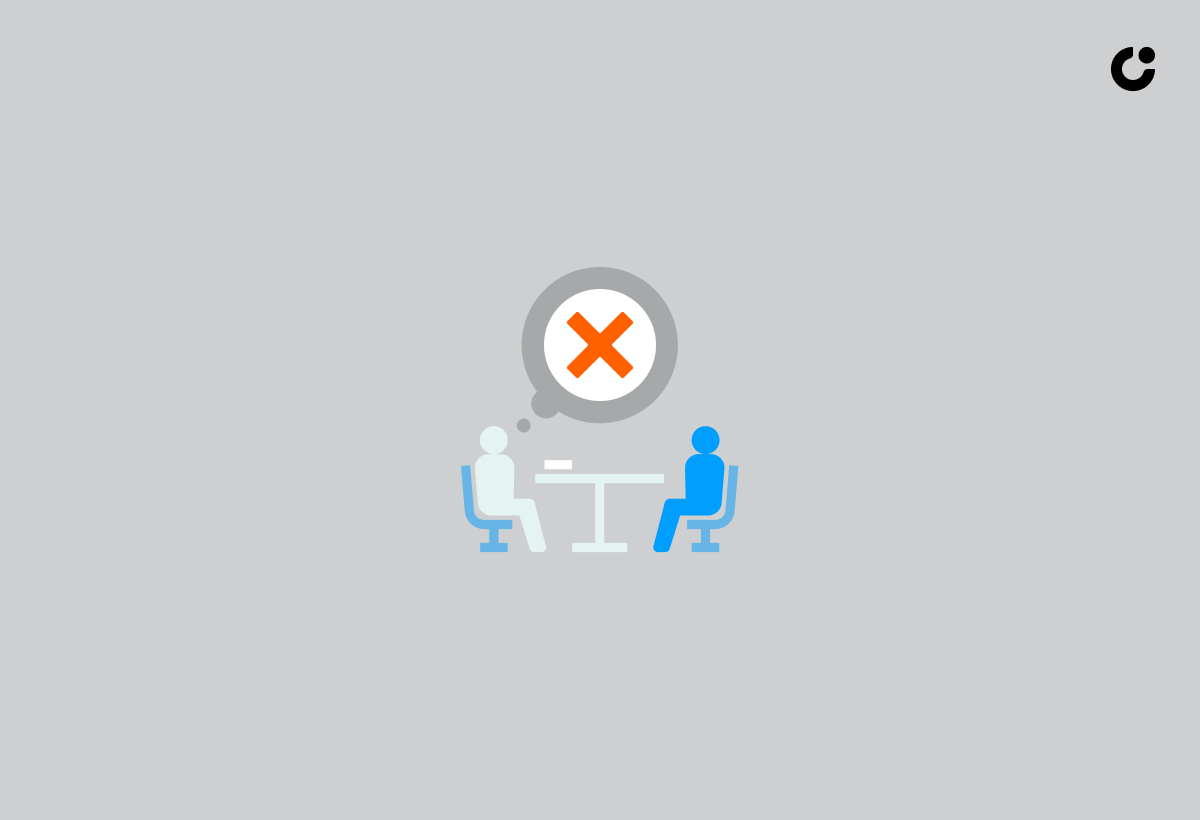Are you faced with the dilemma of needing to decline a job interview offer? It's important to understand the significance of declining professionally and gracefully. In this article, we will explore when to decline an interview, how to craft your decline using a template, and the importance of building bridges even when saying no.
We'll also discuss reasons for turning down an interview, along with valuable tips for declining with professionalism. Don't miss out on the opportunity to learn how to respond promptly and respectfully, express gratitude, and maintain relationships in a professional manner. Let's dive in!
Key Takeaways:
Respond promptly and respectfully to the interview invitation, acknowledging the offer and expressing gratitude for the opportunity.
Be honest and tactful in your decline, offering a brief explanation for why you are unable to pursue the interview.
Maintain professionalism and positive relationships by offering alternative solutions and staying focused on your career goals.
Introduction

When faced with the decision to decline a job offer or interview opportunity, it is crucial to handle the situation professionally and politely to maintain positive relationships with the hiring manager and company.
Handling job offer declinations and interview declines with professionalism not only reflects your character and values but also plays a significant role in shaping your career trajectory. It showcases your ability to make thoughtful decisions and prioritize communication, which are essential skills in any professional setting. Maintaining a respectful approach in such scenarios can help you leave a lasting positive impression, potentially paving the way for future opportunities or referrals. Remember, how you handle rejections can greatly impact how you are perceived within the industry and among your network.
Understand the Importance of Declining Professionally

Understanding why declining a job offer or interview professionally is essential can help you navigate such situations with grace and maintain positive connections with the hiring manager and company.
Handling job offer and interview declines professionally is not just about the immediate situation; it extends to your overall professional reputation and future opportunities. When you handle such scenarios with tact and respect, you demonstrate your commitment to professionalism and courtesy, traits highly valued in any industry. By politely declining offers or interviews, you leave the door open for potential collaborations in the future. Navigating such delicate interactions with grace showcases your ability to communicate effectively and make thoughtful decisions, qualities that can set you apart in the competitive job market.
When to Decline an Interview

Knowing when to decline an interview is crucial in aligning your career goals and values with the opportunities presented, enabling you to make informed decisions that benefit your professional journey.
One significant factor that may lead you to decline an interview is a mismatch between your long-term objectives and the company's direction. Your career path should ideally converge with the role you are being interviewed for, ensuring mutual growth and satisfaction.
Apart from career alignment, inconsistencies in company culture can also play a pivotal role in your decision-making process. Company values and work environment should resonate with your personal beliefs and working style for a harmonious fit.
By recognizing these red flags early on and opting for interviews that align with your aspirations, you can steer your professional journey towards success and fulfillment.
Evaluating the Job Offer

When evaluating a job offer, consider how it aligns with your career goals, the company culture, and the opportunities for growth and advancement, as these aspects play a pivotal role in the decision-making process.
Assessing the compatibility of a job offer with your long-term career aspirations is essential for ensuring that the role will truly support your professional development.
Aligning your goals with the job responsibilities and future prospects can lead to a more fulfilling and rewarding career path.
Understanding the organization's values and how they resonate with your own beliefs can help gauge whether you will thrive in that work environment, fostering a sense of belonging and satisfaction.
Considering the potential for professional growth within the company is crucial for building a successful career trajectory.
Crafting Your Decline

Crafting a thoughtful and respectful decline when turning down a job offer or interview opportunity is essential to convey gratitude, professionalism, and maintain positive relationships in the professional realm.
When delivering a rejection, it's crucial to express appreciation for the opportunity presented while highlighting the professionalism that encapsulates your decision.
Honesty and transparency should underline your communication, emphasizing the reasons for declining without disparaging the offer or the company.
Offering alternative solutions, such as recommending someone who could be a good fit or expressing interest in future opportunities, can soften the impact of the rejection and show that you value the relationship.
Template for Declining

Having a template for declining job offers or interview invitations can streamline the process and ensure your response is prompt, respectful, and reflective of your appreciation for the opportunity presented.
When crafting your response, it's crucial to express gratitude for the offer. Begin by acknowledging the time and consideration put forth by the hiring manager or recruiter. Follow this with a concise and clear explanation for declining the offer. It's essential to keep the tone positive and respectful, focusing on your current circumstances or career goals that lead to this decision. Offer to stay connected for future opportunities and express your interest in potential collaboration down the line.
Building Bridges

Building bridges even when declining job offers or interview opportunities can foster positive relationships, open future doors, and showcase your professionalism and respect for the hiring manager and company.
By expressing gratitude for the offer and clearly articulating your reasons for turning it down, you can leave a lasting impression of courtesy and integrity.
Remember, the professional world is small, and maintaining a positive connection even in moments of rejection can lead to future collaborations, referrals, or unexpected opportunities down the line.
Showing that you value the relationship and the efforts made by the organization can make you stand out as a courteous and thoughtful professional.
Reflecting and Refocusing

Taking time to reflect on your reasons for turning down an interview or job offer can provide valuable insights into your career goals, values, and preferences, enabling you to refocus your efforts towards opportunities that align better with your aspirations.
Self-assessment plays a crucial role in this process, allowing you to evaluate whether the opportunity offered matches your long-term objectives. By setting clear goals and considering the bigger picture, you can ensure that your decisions are in line with your professional trajectory. Additionally, reflecting on past choices can help you learn from experiences and make more informed decisions in the future. Remember that each decision shapes your career path, and aligning your choices with your values is key to achieving long-term success.
Reasons for Turning Down an Interview

Various reasons may lead to turning down an interview, such as mismatched values, roles, company culture, or simply a better fit elsewhere, reflecting the importance of aligning opportunities with individual career goals and aspirations.
When considering whether to decline an interview offer, it is crucial to evaluate if the company values align with your own principles and beliefs. Assessing if the role is in line with your skills and career objectives is also pivotal in making such a decision. The company culture plays a significant role in assessing if you will thrive in that environment. It is equally important to consider if there are other opportunities that offer greater growth potential or personal satisfaction to advance your career trajectory.
Tips for Declining Professionally

When declining a job offer or interview opportunity, follow these essential tips to ensure a professional, respectful, and tactful response that preserves relationships and upholds your reputation in the professional sphere.
First and foremost, always respond promptly to the job offer or interview invitation. Communicating in a timely manner shows your appreciation for the opportunity and allows the employer to proceed with other candidates promptly. Be honest in your response. If the reason for the decline is another job offer or personal circumstances, convey this transparently.
Express gratitude for the offer extended, acknowledging the time and effort the organization put into considering your application. Reiterating your respect for the company and the opportunity presented helps leave a positive impression despite declining.
When declining, maintain professionalism in your communication. Avoid burning bridges by expressing your regret and extending well wishes for the future success of the company. This approach reflects positively on your character and can leave the door open for potential future opportunities.
Responding Promptly and Respectfully

Responding promptly and respectfully to job offers or interview invitations showcases professionalism, courtesy, and consideration for the hiring manager's time and efforts, laying the foundation for positive interactions and future opportunities.
Timely responses also indicate that you value and respect the opportunity presented to you, whether or not you choose to accept it. Expressing gratitude and conveying your decision thoughtfully not only reflects your communication skills but also helps in nurturing a strong rapport with the organization. It is essential to maintain a positive and constructive tone even when declining, as this leaves a lasting impression of professionalism and leaves the door open for potential collaborations down the line.
Being Honest and Tactful

Being honest and tactful in your communication when declining a job offer or interview opportunity is crucial for maintaining integrity, transparency, and trust in professional relationships, fostering mutual respect and understanding between both parties.
By clearly expressing your gratitude for the offer and providing genuine reasons for your decision, you not only convey respect for the time and effort invested by the employer but also enable them to improve their selection processes moving forward. Constructive feedback plays a vital role in this scenario, helping both parties grow and learn from the experience. It is essential to acknowledge the opportunity presented while respectfully declining, ensuring that professionalism and goodwill remain at the core of the interaction.
Expressing Gratitude and Appreciation

Expressing genuine gratitude and appreciation when declining job offers or interview opportunities conveys respect, acknowledgment, and professionalism, reflecting positively on your character and leaving a lasting impression on the hiring manager or company.
When you respond with gratitude, it shows that you value the time and effort put into considering you for the position. It also highlights your understanding of the employer's needs and the importance of clear, honest communication in professional interactions.
By expressing thanks, you not only maintain a positive relationship with the company but also leave the door open for potential future opportunities. Remember, even in a polite rejection, showing appreciation can go a long way in enhancing your reputation in the industry.
Maintaining Relationships

Maintaining relationships even after declining job offers or interview opportunities is crucial for networking, future collaboration, and potential referrals, demonstrating a commitment to professionalism, respect, and long-term connections in the professional realm.
Building and fostering strong connections with hiring managers or companies, regardless of the outcome, can pave the way for unforeseen opportunities. By keeping communication lines open and expressing gratitude for the consideration, individuals can leave a lasting impression on decision-makers. This approach not only showcases one's integrity and courtesy but also positions them positively for future engagements. Nurturing these relationships can lead to valuable industry insights, mentorship possibilities, or even recommendations for alternative pathways. Networking is not just about securing immediate job roles, but about cultivating a community of support and growth.
Keeping It Brief and Thoughtful

Keeping your response brief and thoughtful when declining job offers or interview invitations demonstrates efficiency, consideration, and professionalism, ensuring clear communication and maintaining a positive impression in professional interactions.
It is crucial to convey your decision with clarity and respect, acknowledging the opportunity extended to you. Craft your message carefully to express gratitude while politely declining.
Expressing appreciation for the offer and citing specific reasons for your decision can help soften the decline. Emphasize your eagerness to potentially work together in the future, maintaining a positive tone throughout. This not only promotes transparency but also leaves the door open for future opportunities should circumstances change.
Remember, expressing gratitude is key in showcasing professionalism in any communication.
Offering Alternative Solutions

Offering alternative solutions or suggestions when declining job offers or interview opportunities displays a proactive and considerate approach, showcasing their willingness to assist, engage, and contribute positively despite the decision to decline.
By proposing creative alternatives, individuals not only demonstrate their problem-solving skills but also highlight their collaborative mindset and commitment to finding mutually beneficial outcomes.
This proactive stance not only leaves a positive impression on the employer but also underscores their professionalism and dedication to effective communication.
Embracing this approach fosters constructive engagement and opens the door to potential future opportunities through their proactive and solution-oriented responses.
Maintaining Professionalism

Maintaining a high level of professionalism when declining job offers or interview invitations reflects your commitment to ethical conduct, respect for others, and the value you place on integrity and clear communication in professional interactions.
By handling these situations with grace and gratitude, you demonstrate a deep understanding of professional etiquette and leave a positive impression on the organization. It is crucial to express your thanks for the opportunity while respectfully declining if the role doesn't align with your career goals.
Remember, maintaining professionalism in how you decline job offers is not just about this specific interaction—it reflects your overall character and how you handle delicate situations with tact and integrity.
Practicing Your Response

Practicing your response when declining job offers or interview opportunities helps you refine your messaging, delivery, and professionalism, ensuring that your communication is clear, concise, and effective in conveying your intentions and gratitude.
By rehearsing beforehand, you can develop a structured approach to navigate through delicate conversations, ensuring that your tone remains respectful and appreciative. This preparation allows you to tailor your messages to specific situations, maintaining a positive relationship with the employer or interviewer.
Practicing these responses enables you to handle unexpected inquiries confidently, showcasing your grace under pressure and adaptability. Consistent practice also fosters self-assurance, reducing anxiety or uncertainty when addressing challenging scenarios.
Staying Positive and Focused

Maintaining a positive and focused mindset when declining job offers or interview opportunities can help you navigate challenging conversations with grace, professionalism, and optimism, fostering constructive interactions and preserving relationships.
Approaching the situation with resilience and a solution-oriented attitude can turn what might be perceived as a difficult conversation into an opportunity for growth and mutual respect. By acknowledging the efforts of the hiring team and expressing gratitude for the offer extended, you demonstrate your commitment to maintaining positive connections within the professional realm. Remember that while declining an offer, it is essential to uphold your professionalism and handle the communication with sincerity and courtesy.
Concluding Thoughts on Declining Interview Offers

Declining interview offers with professionalism, honesty, and gratitude is a vital aspect of maintaining professional integrity, fostering positive relationships, and aligning your career decisions with your long-term aspirations and values.
When you handle interview refusals with dignity and sincerity, you not only demonstrate respect for the time and effort invested by the hiring team but also leave a lasting impression of professionalism. Expressing appreciation for the opportunity, providing a concise and genuine reason for your decision, and promptly communicating your choice can exemplify your commitment to integrity and thoughtfulness.
By ensuring that your rejection is conveyed respectfully, you uphold the bonds that you may have established during the application process and keep the door open for potential future collaborations or opportunities. Remember, nurturing relationships within the professional realm is paramount for long-term success and growth, and even in declining an interview offer, you can strengthen your reputation as a conscientious and reliable candidate.
Additional Resources and Reading

For further insights and guidance on navigating job offer declines, interview refusals, and professional relationship management, consider exploring additional resources and reading materials that can enhance your understanding and skills in handling such situations effectively.
When dealing with job offer rejections, it's essential to maintain a professional demeanor and keep the lines of communication open with the employer. Understanding the reasons behind the refusal can provide valuable learning experiences and help you improve your future approaches.
Career Contessa - A platform offering articles on navigating career challenges and professional growth.
The Muse - Provides insights on job search strategies and workplace dynamics.
Harvard Business Review - Offers articles on effective communication and building strong professional relationships.
These resources can offer practical tips and expert advice to handle challenging career decisions with confidence and grace.
Frequently Asked Questions
1. How can I politely decline an interview email with professionalism and grace?
When declining an interview email, it's important to be courteous and professional. Start by thanking the interviewer for the opportunity and explaining that you have decided to pursue other options. Be honest and express your appreciation for their consideration.
2. Is it necessary to provide a reason for declining an interview email?
It's not mandatory to provide a reason, but it's a good idea to offer a brief explanation. This shows respect for the interviewer's time and effort. However, you can simply state that you have decided to pursue other opportunities and leave it at that.
3. How should I respond to an interview email if I am not interested in the position?
It's best to respond as soon as possible to avoid wasting the interviewer's time. Keep your email brief and professional, expressing your gratitude for the offer but stating that you are not interested in pursuing the position at this time.
4. Can I decline an interview email even if I have already accepted the invitation?
Yes, you can decline an interview email even if you have initially accepted the invitation. Simply follow the same steps as you would when declining the first time. Be sure to apologize for any inconvenience and express your appreciation for the opportunity.
5. What is the most appropriate way to decline an interview email?
The most appropriate way to decline is through a formal email. This allows you to express your gratitude and politely decline the interview in a professional manner. Avoid declining through a phone call or text message, as it may come off as unprofessional.
6. Should I keep the door open for future opportunities when declining an interview email?
It's always a good idea to keep the door open for potential future opportunities. You can do this by expressing your interest in the company and thanking the interviewer for their time and consideration. This shows professionalism and leaves a positive impression for any potential future opportunities.

